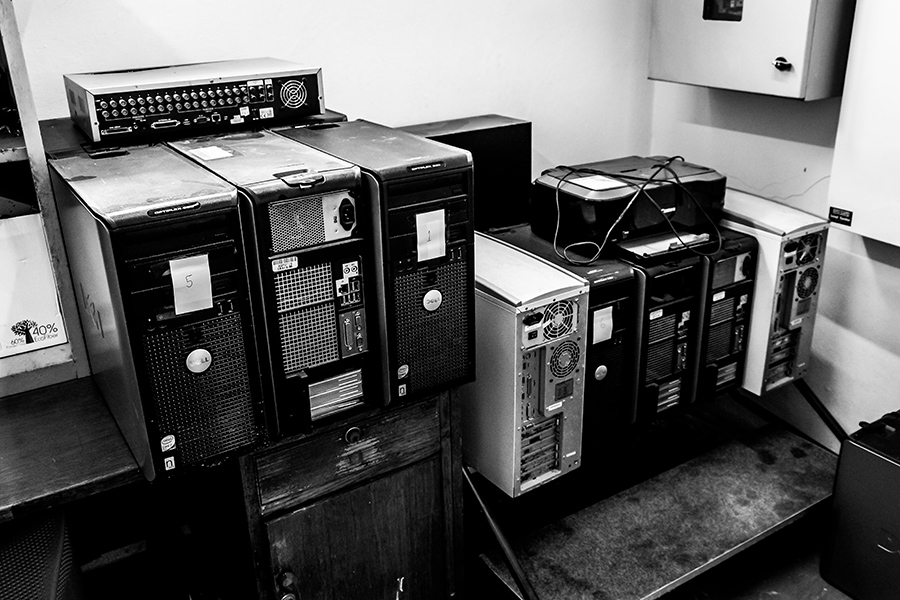
An executive explains why third-party remarketing service providers may be a good option for processors. | Creative Stock Studio/Shutterstock
Over the last decade, the industry has seen hundreds of millions of investment dollars pour into the ITAD community through strategic acquisitions and personnel hires. These investments have been both from the top-down (M&A activity from companies that sell new products and want to expand their client services portfolio) and from the bottom-up (projects undertaken by recyclers, investment firms and existing ITAD companies).
Examples of top-down acquisitions include Arrow Electronics’ acquisitions of Converge, Intechra, Flection, Redemtech, TechTurn, US Micro and others (and then in 2019 Arrow exited the ITAD business); Ingram Micro’s acquisition of Cloud Blue; and Smith Electronics’ expansion of its ITAD program.

Michael Schuler
There are also a number of examples of bottom-up acquisitions. Those include eCycle Solutions’ acquisition of Refreshtek, the formation of Quantum Lifecycle Partners, Clover Wireless’ acquisition of MaxBack, the acquisitions of ITAD USA, Teladvance and CExchange, Tech Defenders’ acquisition of Device Renew, Regency Technologies’ acquisition of GEEP USA, and an investment firm’s acquisition of HiTech Assets.
The pressure for making these investments comes from two major drivers. First, organizations on both sides of the product life cycle spectrum see the profitability found in traditional ITAD.
Operating on gross margins that range from 45% to 65%, it is a lucrative industry and one that often finds customers more focused on service than value recovery. The second driver is the fact that it’s low-hanging fruit, because these companies already have the client base (and customer acquisition is coincidentally the biggest challenge for most ITAD companies).
Therefore, making ITAD an additional service offering makes sense as “owning the customer” means satisfying all their customer’s needs as a single point of contact.
‘Better to date before you marry’
However, those investments don’t always translate to profitable business decisions, as evidenced by the case of Arrow Electronics, which acquired a number of ITAD companies before deciding to suddenly exit the ITAD business in 2019.
Simply buying an ITAD company or launching your own ITAD division doesn’t necessarily solve the challenge of cobbling together a cost-effective network of ITAD service providers to offer a national (or global) footprint. Additionally, aside from the client base, the real value of most ITAD operations is the product remarketing and operations executive teams; if (and when) these key players move on, they can leave investors with a shell of a company.
The traditional model of acquiring an ITAD division also doesn’t necessarily mean acquiring the skill sets, multiple resale channels and institutional knowledge that’s needed to succeed in product remarketing.
These are the problems that my company, Veterans Alliance Resourcing, Inc. (VAR), aims to solve, with a business model that offers concierge ITAD and product remarketing services. An R2v3 and ISO:9001:2015, 14001:2015 and 45001:2018 certified company, VAR is led by two industry executives with decades of experience in reverse logistics, product audit, repair and remanufacturing, ITAD and product remarketing. A Service-Disabled Veteran Owned Small Business (CVE, NVBDC and NaVOBA), VAR leverages its low-cost ITAD depot services in the U.S. (Texas), alliances with major logistics and field tech organizations and a network of six major ITAD companies (with similar low-processing costs for ITAD) in Europe, Asia, Mexico, Canada and Australia to facilitate the ITAD portion of their solution.
As a product generalist with over 2,500 dealers worldwide, VAR utilizes a network of over 2,500 dealers worldwide to secure strong recovery value for both contract and transactional ITAD and product remarketing services. The company makes its margin for concierge services, typically 20%, in the added recovery or cost-savings they deliver, often reaching 35% or more.
Still, as is the case with all businesses, it’s important for remarketers like us to take steps to position ourselves for success. This business requires you to control your supply chain and know who you’re working with on any engagement. Additionally, many remarketers are concerned about how they might lose their channel when customers learn about their buyers. Through our bid process, we’ve learned that the high bidder on one offering is rarely the high bidder on the next and with the channel we have, there’s little chance it can be circumvented without us getting word.
We believe in the value of the concierge ITAD and product remarketing service as an alternative to the traditional ITAD acquisition model that has dominated the industry in recent years. We recover more dollars at resale, go deeper into the life cycle, take no time to muster our service under a client’s banner, we foster a diverse and agnostic approach to product, and offer no financial risk to a potential client or investor.
As we point out to prospects, it’s better to date before you marry.
Serving a variety of clients
Hiring an outside company to provide concierge ITAD and product remarketing services makes sense for a lot of different types of companies. I’ll mention four VAR case studies to demonstrate the point.
The first involves a global technology-as-a-service company. Supporting an IT portfolio of 100,000 assets in over 60 countries, VAR won this multi-million-dollar engagement two years ago in response to an extended RFP solicitation process. Leveraging VAR’s experience, market knowledge and global resale channel, VAR was able to show much stronger returns at resale – deeper into the product life cycle – than the global asset recovery services division that had held the contract. VAR’s engagement with this company has expanded to now include all ITAD processing in the U.S.
The second case study involves working with a major U.S. recycler. With only a modest history of cultivating ITAD resale prospects, this recycler had just landed a large (initial) engagement with the U.S. government to process over 10,000 laptops. Looking to immediately compete against other recyclers with ITAD divisions, the recycler engaged VAR to perform those services. The condition of the material turned out to be much rougher than originally anticipated, but VAR’s channel was able to absorb this C-grade product while still getting competitive recovery values that covered the contract pricing originally negotiated. The recycler is now looking to expand its engagement with VAR to a long-term contract.
We’ve also worked with a major U.S. recycler that has its own established ITAD division and remarketing team. For this contract, VAR’s pitch was simple: Give us an opportunity to resale the product and we’ll make our margin, while still outbidding your channel. With no risk, the recycler took VAR up on their offer. In the first two transactions, VAR outbid the remarketing team’s recovery numbers, while still covering VAR’s target of 20% margin for the service.
Finally, VAR worked with a used equipment dealer that sells Apple equipment. The company engaged VAR to get offers on a large pool of non-Apple computers. VAR made an immediate purchase offer, allowing the dealer to delight their customer through their willingness to expand their services beyond their traditional vertical product services.
Michael Schuler is the founder, president and CEO of Veterans Alliance Resourcing, Inc. (VAR).
The views and opinions expressed are those of the author and do not imply endorsement by Resource Recycling, Inc. If you have a subject you wish to cover in an op-ed, please send a short proposal to [email protected] for consideration.

